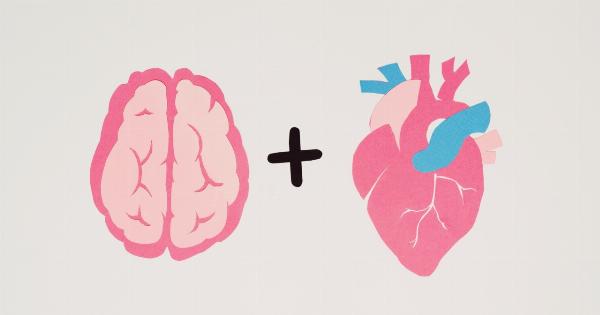The creation of life is a wondrous and awe-inspiring process that has captivated humanity for centuries. Among the many incredible milestones in the development of a baby, the emergence of the fetal heartbeat stands out as a truly miraculous event.
This rhythmic pulsation, signaling the beginning of life within the womb, holds immense significance for both expecting parents and the medical community.
A Window into Early Pregnancy
The fetal heartbeat is a momentous moment that usually takes place between the 5th and 8th week of pregnancy. At this early stage, the heart is merely a tiny tube, barely visible to the naked eye.
However, through advanced ultrasound technology, medical professionals are now able to witness this astounding phenomenon.
The revelation of the fetal heartbeat through an ultrasound scan provides an invaluable glimpse into the health and development of the growing fetus.
It establishes a vital connection between the expectant parents and their unborn child, fostering a sense of wonder, excitement, and responsibility.
The Science Behind the Beat
The human heart begins its journey as a simple tube that gradually transforms into a complex organ. The process starts with the formation of two primary heart tubes, which eventually merge to form the four chambers of the heart.
As early as the 4th week of gestation, specialized cells within the heart tubes initiate rhythmic contractions. These contractions progress to create a steady beat, a remarkable feat for an organ at such an early stage of development.
This early heartbeat is primarily driven by the spontaneous electrical impulses generated by the heart cells themselves, rather than by external signals from the brain.
The Role of Blood Circulation
While a beating heart alone is astonishing, the significance of the fetal heartbeat extends beyond its rhythmic nature.
It serves as a catalyst for the establishment of a vital circulatory system, allowing the distribution of essential nutrients and oxygen to sustain the growing fetus.
The fetal circulatory system undergoes a fascinating transformation during pregnancy. In the early stages, the placenta, a crucial organ that connects the developing fetus to the mother, takes on the role of oxygen and nutrient exchange.
Through a network of blood vessels, the placenta receives oxygen-rich blood from the mother and transports it to the fetus via the umbilical cord.
The fetal heartbeat plays a crucial role in this process. By pumping oxygen-depleted blood back to the placenta for replenishment, the heart ensures a continuous flow of oxygenated blood to nourish the developing organs.
Signs of a Healthy Heartbeat
The fetal heartbeat serves as an essential indicator of the baby’s overall well-being. Certain characteristics of the heartbeat, including its rate and regularity, provide valuable insights into the baby’s health.
The normal fetal heart rate ranges between 120 and 160 beats per minute. However, during the early stages of development, the heart rate can reach as high as 180 beats per minute.
As the pregnancy progresses, the heart rate gradually decreases to the typical range.
In addition to the heart rate, the regularity of the heartbeat is equally important. A consistent rhythm signifies a healthy heart, whereas irregularities may warrant further medical evaluation.
Medical professionals monitor the fetal heartbeat during prenatal check-ups, using specialized equipment such as a Doppler device or ultrasound.
This allows them to detect any abnormalities or potential complications early on, ensuring appropriate medical interventions, if necessary.
An Emotional Journey
The hearing of a fetal heartbeat can be a profoundly emotional experience for expecting parents. It reinforces the concept of a new life growing within the mother’s womb and provides reassurance that the baby is developing as expected.
For many parents, the first time they hear their baby’s heartbeat represents a pivotal moment in their journey towards parenthood.
It deepens the bond between parents and child, fostering a sense of connection and love that continues to grow throughout the pregnancy.
The Fetal Heartbeat: A Symbol of Hope
The emergence and steady rhythm of the fetal heartbeat symbolize hope and the promise of new life. It serves as a reminder of the incredible resilience and strength within every developing human being.
The miracle of the fetal heartbeat highlights the extraordinary nature of life’s beginnings. It is a testament to the marvels of nature and the incredible potential for growth and transformation that lies within each and every one of us.































